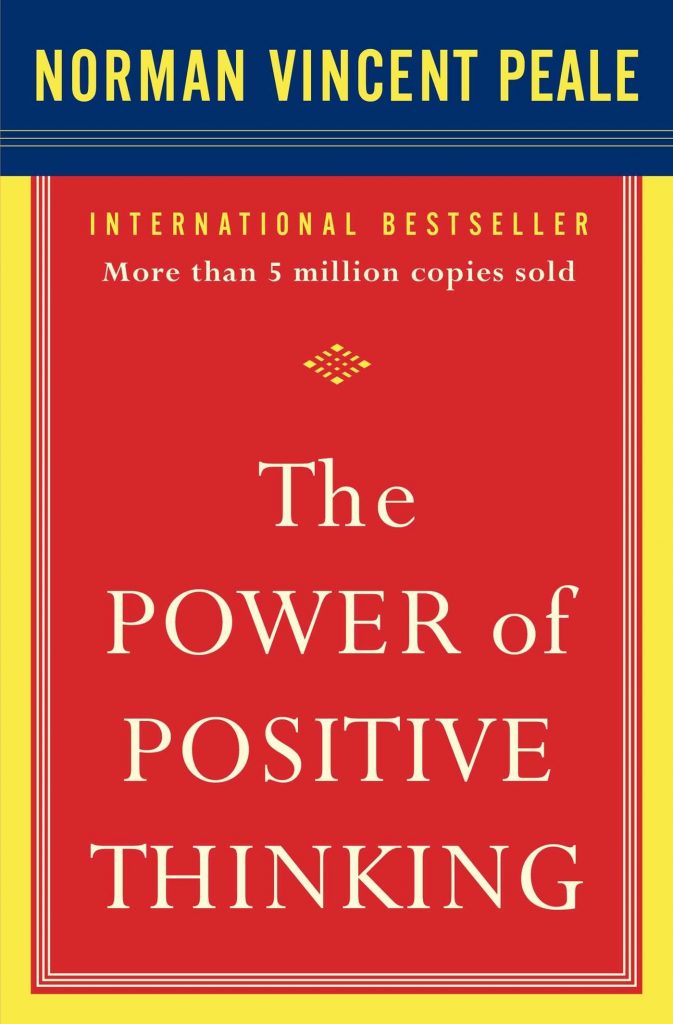We recently spent some time with “The Power of Positive Thinking” by Dr. Norman Vincent Peale, and we’re excited to share our findings with readers who are exploring avenues for personal growth and self-improvement. Published over a decade ago, this book continues to resonate with its audience, evident from its high ratings and substantial readership.
Flipping through its pages, we were struck by the simplicity and power of the message conveyed—a testament to the enduring relevance of Peale’s work. While it integrates spiritual concepts, the core ideas are surprisingly universal, centered around harnessing optimism and faith to overcome challenges.
Across the book’s 218 pages, readers will find stories that exemplify the success of positive thinking, making the book not just a read but an experience. Although some may find the religious undertones pronounced, the underlying principles can offer valuable takeaways for a broad readership. The narrative is strong in encouraging a shift in perspective, which, as Peale suggests, can alter our reality for the better.
Bottom Line
“The Power of Positive Thinking” stands as a compelling read for those seeking to elevate their mental approach to life’s hurdles.
Peale delivers a message that’s as relevant today as it was at the time of publication. Interested in giving it a read? Click here to purchase “The Power of Positive Thinking” and discover the potential for positivity to transform your life.
Overview: The Power of Positive Thinking
We often underestimate the influence of our mindset on everyday life. Having just turned the last page of “The Power of Positive Thinking,” we found its content refreshingly actionable. The author, Dr. Norman Vincent Peale, invites readers to tap into the underutilized power of optimism to surmount various life challenges. While some might find the book’s leanings on religious text a tad heavy, the core message transcends specific beliefs, emphasizing universal principles of self-belief and positive action.
Summarizing sentiments from other readers, the consensus is strong: the book makes a notable impact. It’s not without its critics, some of whom feel the religious undertones are stronger than preferred, but the positive takeaways appear to resonate broadly. True to its title, this book isn’t just a theoretical treatise; it’s filled with relatable anecdotes and practical advice. We especially appreciate that the wisdom isn’t abstract but rather grounded in real stories, making the suggested changes feel attainable.
Dr. Peale’s writing encourages one to transform introspection into outward success. This might sound familiar, but it’s the simplicity and clarity of the message that gives the book its staying power. Whether you’re a steadfast believer in the book’s principles or approaching with a hint of skepticism, there’s likely something within these pages that can prompt a shift in perspective, and perhaps, life.
Key Features
Recently, we got our hands on a copy of “The Power of Positive Thinking,” and after spending some time with it, we’re eager to share our thoughts on its key attributes. With over 20,000 reviews tallying up to a strong average rating, there’s a lot to unpack about why this book might resonate with readers seeking self-improvement.
Concise and Impactful Wisdom
One striking aspect of the book is how its messages are presented in a succinct manner. The author, through very direct and uncomplicated language, articulates profound advice that’s easy to digest. The brevity of the chapters means you’re not getting overwhelmed with information, and it’s convenient for referring back to key points as needed.
Biblical Connection to Everyday Life
For those who cherish spiritual insights, “The Power of Positive Thinking” weaves Biblical principles into practical, everyday scenarios. What we’ve found compelling is the seamless integration of these age-old teachings with modern-day dilemmas. It doesn’t matter if you’re deeply religious or just casually interested in spiritual wisdom; there’s a universal appeal in recognizing how these narratives could offer guidance in current times.
Real-Life Success Stories
This book doesn’t just preach; it demonstrates. Peppered throughout the text are anecdotes and testimonials that ground the book’s concepts in reality. We’ve observed that these examples resonate well with readers because they enable a connection between the author’s ideas and real-world applications. These stories provide a tangible context for the principles discussed, illustrating their potential impact on one’s life.
Accessible and Engaging Narrative
Norman Vincent Peale, the book’s author, has a knack for storytelling that keeps the reader engaged. We were particularly struck by the conversational tone that invites a broad readership. Regardless of where you find yourself on the educational or socioeconomic spectrum, the narrative is clear and relatable, ensuring the messages are accessible to all who delve into its pages.
Pros and Cons
Pros
After spending some time with “The Power of Positive Thinking,” it’s clear that the book holds its reputation for a reason. We found Dr. Norman Vincent Peale’s approach to self-improvement to be both practical and profound. Here are some positives we discovered:
- Compact Wisdom: The book distills life-changing wisdom into a concise format, packing each page with insightful guidance.
- Positive Real-World Application: By connecting biblical principles to modern-day challenges, the author provides actionable steps toward a more optimistic mindset.
- Inclusive Stories: The inclusion of various personal stories enhances relatability and keeps readers engaged.
Cons
Although we appreciate the value “The Power of Positive Thinking” provides, there are a couple of elements that might not appeal to all readers:
- Religious Overtones: Some may find the book’s frequent references to religious concepts and biblical verses to be a bit heavy-handed if they were expecting a more secular read.
- Repetitive Themes: A few of us felt that certain ideas were reiterated more often than necessary, which could potentially affect the pacing for some.
In summary, while the book is certainly uplifting and offers a great deal of wisdom, it is best suited for readers who appreciate spiritual references intertwined with self-help guidance.
Inspirational Insights
We recently had the pleasure of soaking in the pages of a book that feels like a guide to uplifting one’s spirit. “The Power of Positive Thinking” provides thought-provoking takeaways that linger long after the final chapter. The author’s ability to weave together personal anecdotes and timeless wisdom gives it an approachable and authentic feel. It strikes just the right balance, although it may tread a bit heavily on religious references for some reader’s tastes.
Working through the book, we found moments of genuine encouragement. The principles it outlines aren’t new but are presented in a manner that’s digestible and relatable. However, not all of us might resonate with every aspect; the spiritual underpinnings, while profound, may not align with everyone’s belief system. Yet, the core message remains solid: shifting one’s perspective can lead to remarkable changes in life and well-being.
The consensus among us is clear. It’s a read worthy of consideration, especially for those on a journey to harness the power of positivity within their lives.
Customer Reviews
From our experience, “The Power of Positive Thinking” has been a source of encouragement and practical insight. Holding an impressive 4.6-star rating from over 20,000 readers, the message is clear: this book resonates with many. Most readers commend the book’s ability to distill complex wisdom into digestible, actionable advice. The author’s incorporation of real-world examples adds a layer of relatability.
Yet, not all feedback is undivided praise. Some readers feel the religious tone is a bit pronounced, preferring a subtler approach to spirituality. However, this sentiment doesn’t overshadow the general consensus that the teachings within the book are valuable.
An intriguing note is the mention of biblical verses alongside psychological principles, illustrating an interwoven approach to self-improvement. Users often share stories of personal transformation after implementing the strategies discussed by Dr. Peale.
We’ve seen commentary highlighting the beauty and eloquence of the writing. While readers acknowledge the author’s masterful storytelling, it’s the life-changing implications of adopting a positive mindset that leave a lasting impact.
Conclusion
After spending time with “The Power of Positive Thinking,” we’ve come to appreciate the clear and pragmatic approach it offers. The book isn’t just another self-help guide; it’s a thoughtful blend of spirituality and actionable advice. While some readers may find the religious overtones a bit much, there’s no denying that the book brings forward some compelling ideas on harnessing one’s inner positivity.
We noticed that Dr. Peale’s use of real-life examples resonates well and demonstrates the principles in practice, which can be quite motivating. However, it’s important to remember that the effectiveness of the advice will vary from person to person.
Overall, we see the potential for positive change in those who apply the book’s principles. Certainly, “The Power of Positive Thinking” has earned its place on our bookshelf, and for many of us, it has been a call to reflection and an adjustment in perspective.
Related books:
- Good Vibes, Good Life: How Self-Love Is the Key to Unlocking Your Greatness



